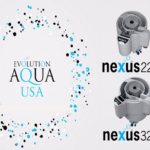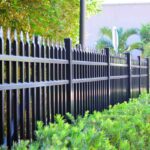If you’ve ever experienced the frustration of a malfunctioning water pump, you know how vital it is to keep it running smoothly. In this article, we’ll dive into the world of Monarch water pumps and provide you with practical maintenance tips to ensure your pump operates at its best.
Understanding the Monarch Water Pump
Before we jump into maintenance, let’s get acquainted with Monarch water pumps. These reliable pumps have been a staple in many households for years, known for their efficiency and durability. Whether you use them for residential or commercial purposes, they play a critical role in ensuring a consistent flow of water.
The Heart of Your Water System
Monarch water pumps serve as the heart of your water supply system. They are responsible for drawing water from a source, whether it’s a well, a river, or a tank, and distributing it throughout your home or property. These pumps are often used for irrigation, filling swimming pools, and supplying water to various appliances and fixtures.
Now that we’ve established the importance of Monarch water pumps, let’s explore some key maintenance tips to keep them in excellent working condition.
Regular Inspection and Cleaning
One of the most fundamental aspects of pump maintenance is regular inspection and cleaning. Over time, debris, sediment, and mineral deposits can accumulate within the pump, affecting its efficiency. Here’s a step-by-step guide on how to inspect and clean your Monarch water pump:
1. Safety First
Before you start, ensure the pump is switched off and disconnected from the power source. Safety should always be a priority.
2. Visual Inspection
Begin by visually inspecting the pump for any signs of damage or wear. Look for cracks, loose connections, or leaking seals. If you notice any issues, address them promptly.
3. Clean the Intake Screen
The intake screen is responsible for filtering out large debris from entering the pump. Remove it and clean it thoroughly to prevent clogs. A clogged intake screen can lead to reduced water flow and increased strain on the pump.
4. Check the Impeller
Inspect the impeller for any obstructions. This is a crucial component that moves the water through the pump. Clear any debris or blockages that may hinder its rotation.
5. Lubrication
Some Monarch water pumps may require lubrication for optimal performance. Consult your pump’s manual to determine if lubrication is necessary and follow the manufacturer’s recommendations.
Monitor Pressure and Flow
Another essential aspect of pump maintenance is monitoring pressure and flow. Irregularities in these two factors can indicate potential issues with your Monarch water pump.
1. Pressure Gauge
Install a pressure gauge on the pump system to monitor the pressure. A sudden drop in pressure may indicate a leak or a problem with the pump’s operation. Address these issues promptly to prevent further damage.
2. Flow Rate
Measure the flow rate of water from your pump. Compare it to the manufacturer’s specifications to ensure it’s within the recommended range. A significant decrease in flow rate can signal a problem that needs attention.
Maintain Adequate Water Quality
The quality of water that your Monarch water pump handles can significantly impact its longevity. If your water source contains high levels of minerals or sediments, it can lead to clogs and damage to the pump.
1. Install a Water Softener
If your water is hard and contains a high mineral content, consider installing a water softener. Softening the water can reduce the buildup of scale and mineral deposits within the pump.
2. Use Proper Filters
Incorporate filters in your water system to remove sediment and other impurities. Regularly replace these filters to ensure they don’t become clogged, causing strain on the pump.
Protect Your Pump from Freezing
If you live in an area with cold winters, it’s essential to protect your Monarch water pump from freezing temperatures. Freezing can damage the pump’s components and lead to costly repairs.
1. Insulate Pipes
Insulate the pipes connected to your pump to prevent freezing. Use appropriate insulation materials and cover exposed pipes thoroughly.
2. Install a Freeze-Prevention Kit
Consider installing a freeze-prevention kit that uses heat tape or cables to keep the pump and pipes warm during cold spells. This can be a lifesaver in preventing freeze-related damage.
Hire Professional Maintenance
While many maintenance tasks can be performed by homeowners, it’s wise to schedule periodic professional maintenance for your Monarch water pump. Experienced technicians can identify and address issues that may go unnoticed by the untrained eye.
Conclusion
Your Monarch water pump is a critical component of your water supply system, and proper maintenance is essential to ensure its longevity and efficiency. By following these maintenance tips, you can keep your pump running smoothly for years to come. Remember, regular inspection, cleaning, monitoring, and protection from freezing are key to maintaining your pump’s peak performance.
So, whether you rely on your Monarch water pump for irrigation, filling your swimming pool, or supplying water to your home, these maintenance practices will help you avoid the frustration of a malfunctioning pump. Invest in the care of your pump today, and it will serve you faithfully for many seasons to come.








